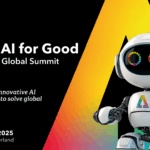The first issue of the ITU Journal: ICT Discoveries forecasts how Artificial Intelligence (AI) will improve user experience by enhancing the performance and efficiency of communication networks. This technical analysis is matched with investigation of the social and ethical dimensions of advances in AI.
The peer-reviewed ITU Journal publishes original research on technical innovation in ICT and associated transformations in business, governance and society. The first special issue of the ITU Journal demonstrates the interdisciplinary scope of the publication.
“The ITU Journal will help industry players and policymakers to prepare for the impacts of major breakthroughs in research.” – Houlin Zhao, ITU Secretary-General
The issue highlights the potential of AI to support communication networks and services in fields including cognitive radio, automated driving and cybersecurity. It points to AI’s value in monitoring our environment, making a case study of Australia’s Great Barrier Reef. It proposes design principles for AI systems sensitive to human values, a study viewed through the lens of the European labour market. Also in focus are the ethical implications of advancing AI capabilities, particularly as they relate to data security.
Download the first special issue of the ITU Journal
AI is expected to influence a broad scope of ITU’s work. The first issue of the ITU Journal assists in providing the context for this influence from the perspectives of technology as well as business, law, ethics and regulation.
Standardization experts contributing to ITU-T Study Groups are studying AI’s potential to bring more automation and intelligence to the design, operation and maintenance of ICT networks and services. A new ITU Focus Group is proposing standardization strategies to assist machine learning in contributing to the efficiency of emerging 5G systems. The AI for Good Global Summit is the leading United Nations platform for dialogue on AI, aiming to ensure that AI accelerates progress towards the United Nations’ Sustainable Development Goals.
“The long-term vision of academia helps ITU to prepare for the future,” says ITU Secretary-General Houlin Zhao. “The ITU Journal will help industry players and policymakers to prepare for the impacts of major breakthroughs in research.”
Researchers participate alongside industry-leading engineers and policymakers in ITU expert groups responsible for radiocommunication, standardization and development. The ITU Journal’s Editor-in-Chief, Professor Jian Song of Tsinghua University, highlights the congruence of the values of ITU and academia.
“The research community works in service of the public interest. We hope to ensure that our work supports social and economic development on a global scale. We share these ideals with the United Nations,” says Professor Song.
Navigate directly to ITU Journal papers of interest.
Invited papers:
- Responsible Artificial Intelligence: Designing AI for human values
- Reconfigurable Processor for Deep Learning in Autonomous Vehicles
- Real-time monitoring of the Great Barrier Reef using Internet of Things with big data analytics
- Inclusion of Artificial Intelligence in Communication Networks and Services
- Explainable Artificial Intelligence: Understanding, Visualizing and Interpreting Deep Learning Models
- The Convergence of Machine Learning and Communications
- Application of AI to Mobile Network Operation
Selected papers:
- On Adaptive Neuro-Fuzzy Model for Path Loss Prediction in the VHF Band
- Beyond MAD?: The Race for Artificial General Intelligence
- Artificial Intelligence for Place-Time Convolved Wireless Communication Networks
- Bayesian Online Learning-Based Spectrum Occupancy Prediction in Cognitive Radio Networks
- The Evolution of Fraud: Ethical Implications in the Age of Large-Scale Data Breaches and Widespread Artificial Intelligence Solutions Deployment
- Machine Intelligence Techniques for Next-Generation Context-Aware Wireless Networks
- New Technology Brings New Opportunity for Telecommunication Carriers: Artificial Intelligent Applications and Practices in Telecom Operators
- Correlation and Dependence Analysis on Cyberthreat Alerts












